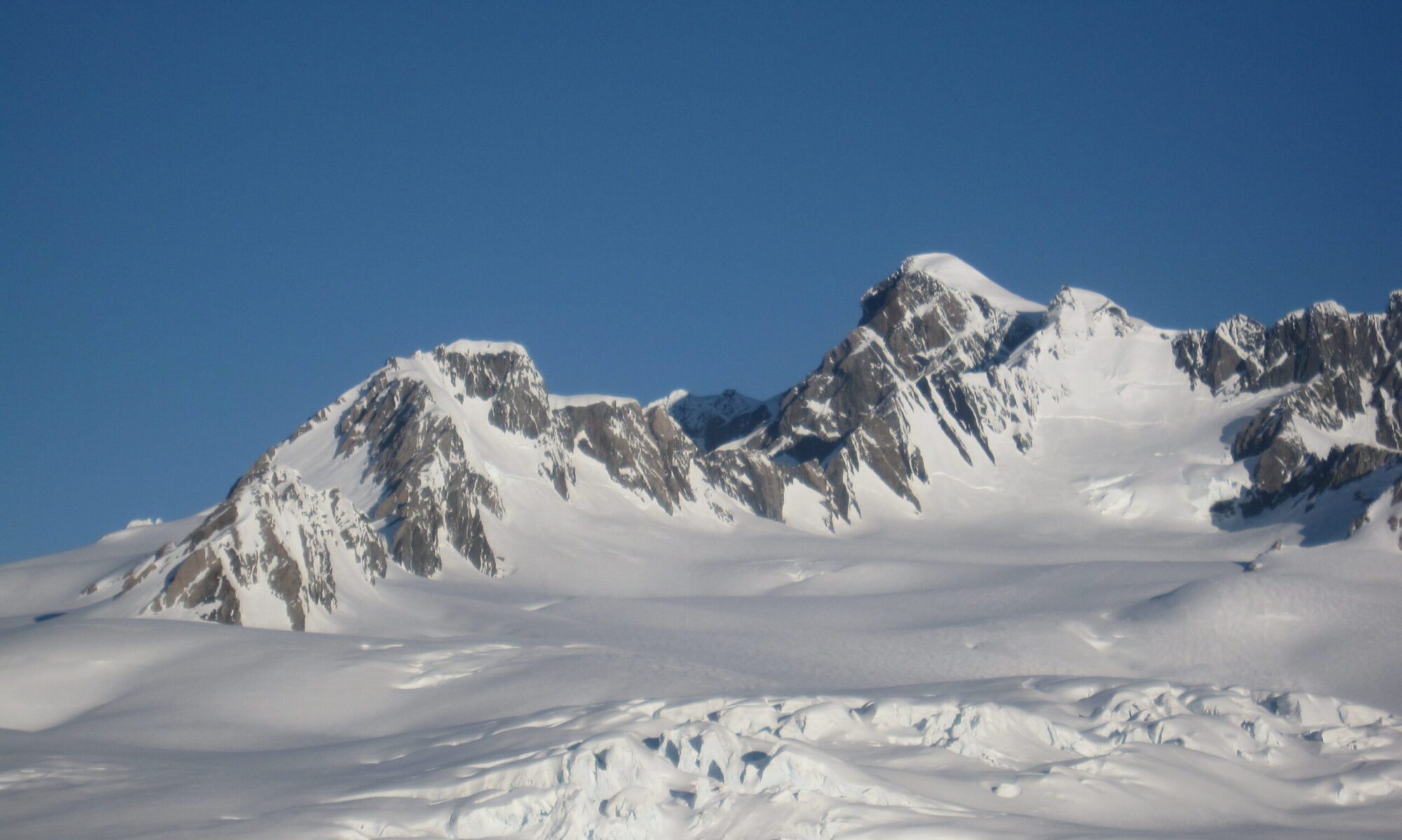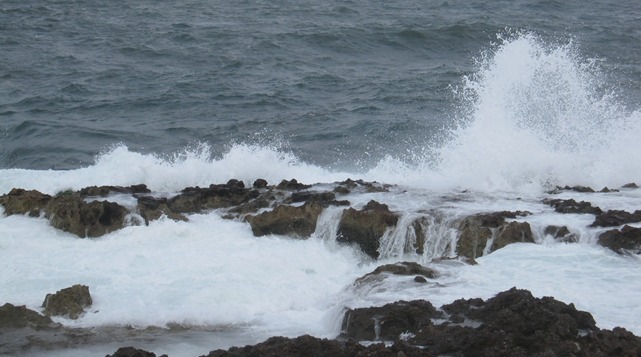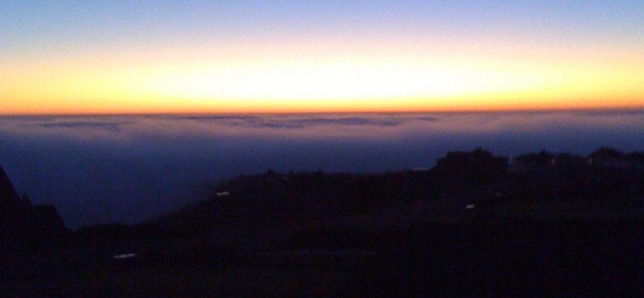
The Headwaters Project
The Source
The source of our problems is not biological in nature. Our problems have their roots in our man-made culture, in our outdated worldview, in the old story we tell ourselves about ourselves and our world. The source of our problems is our mistaken identity story of separation; the source of our problems is our belief in separation.
We are living inside an inherited belief system that tells us we are separate beings in a world of separate beings. This belief system operates underneath our conscious awareness, framing and limiting everything we see and do. From within it we are creating a world that reflects our beliefs, a world with institutions and systems based on separation, scarcity, competition and survival of the fittest.
At the personal level we perceive ourselves as separate from everything else. Albert Einstein called this perceived separation an optical delusion of consciousness:
"A human being is part of the whole called by us ‘universe,’ a part limited in time and space. We experience ourselves, our thoughts and our feelings as something separate from the rest, a kind of optical delusion of consciousness. This delusion is a kind of prison of us, restricting us to our personal desires and to affection for a few persons nearest to us. Our task must be to free ourselves from the prison by widening our circle of compassion to embrace all living creatures and the whole of nature in its beauty."
As we come to better understand ourselves and the world, as more and more of us see what Einstein saw, as we evolve, we will free ourselves from the delusion of separation and the problems it creates. The goal of The Headwaters Project is to help us evolve.

Working Upstream
“Headwaters” plays on the phrase “working upstream.” This saying illustrates the idea: “Give a man a fish and feed him for a day or teach him to fish and feed him for lifetime.” Providing food addresses an immediate need; working upstream, education, empowers our fisherman to provide for himself. Meeting an immediate need is short-lived; empowerment has longer-term impact. Both are important and worthy of our attention, but by themselves are not enough.
Upstream of empowerment, is what we call systemic change. What are the systems within which our fisherman applies his new skill? Does he have access to the river? Are the best fishing holes taken? Is there someone upstream with at fishing net or someone dumping toxic waste? Depending on the systems that govern behavior and access our fisherman may still struggle. So working for systemic change, working within a social justice framework on the systemic issues that affect behavior and access, is also worthy of our attention. But this too is not enough.
Upstream of systemic change in our analogy is cultural change. Culture tells us who we are and how to relate to each other and the world. It is an agreed upon set of beliefs on which our laws and institutions -- our systems are based and draw their legitimacy. In our analogy it is the foundation supporting the systems governing behavior and access on the river. So, working at the level of culture is also important if we want real and lasting change.
Changing Culture
So what does it mean to work at the level of culture? Thomas Berry, a Catholic priest, cultural historian, and cosmologist was one of the first to talk about our cultural story. In 1978, when President of the American Teilhard Association for the Future of Man, he published an article in Teilhard Studies titled The New Story: Comments on The Origin, Identification and Transmission of Values. The article begins with this:
"It is all a question of story. We are in trouble just now because we do not have a good story. We are in between stories. The Old Story – the account of how the world came to be and how we fit into it – is not functioning properly, and we have not learned the New Story. The Old Story sustained us for a long time. It shaped our emotional attitudes, provided us with life purpose, energized action. It consecrated suffering, integrated knowledge, guided education. We awoke in the morning and knew where we were. We could answer the questions of our children. We could identify crime, punish criminals. Everything was taken care of because the story was there. It did not make men good, it did not take away the pains and stupidities of life, or make for unfailing warmth in human associations. But it did provide a context in which life could function in a meaningful way."
In his book Dreams of the Earth, published in 2006, Berry put it like this:
"For people, generally, their story of the universe and the human role in the universe is their primary source of intelligibility and value. The deepest crises experienced by any society are those moments of change when the story becomes inadequate for meeting the survival demands of a present situation."
We are in such a moment, a deep crisis where our cultural stories work only in their limited orbits, each providing limited meaning for those who live by them, each inadequate for meeting the demands of our time. So how do we work at the level of culture? We create a new story.

The New Story
A new cultural story is emerging about who we are in relation to each other, our planet and the universe. It is a story of interconnection and interdependence, a story of relationship and Oneness. In many ways it is not new; it is informed by the wisdom inherent in many indigenous cultures and the great spiritual traditions of the past. It is a story infused by the values of community, compassion, cooperation, and fairness.
It draws on the latest advances in science; our understanding of evolution, of our beginnings 13.7 billion years ago, and of our ever expanding universe. It says we are not separate or alone but rather we are part of a whole called by us universe to use Einstein’s word. It says that we not subject to some irredeemable flaw in our nature, but rather we have the capacity to grow and evolve along the paths marked but the great souls of our past. It says that unlike the world’s material resources our inner resources of love and wisdom are inexhaustible. And it says that as part of this evolving process, we have the power to change ourselves and is so doing change our world.

A Role for Philanthropy
History is clear, as our man-made culture changes our world changes, as our culture evolves we evolve. History is also clear that change is not always gradual, sea changes happen. We may be at such a time – we can hope. And we can help. A new and very promising cultural story is emerging and philanthropy can help by supporting the story tellers and sharing their work with all who will listen. The goal of the Headwaters Project is to bring attention to the new story.